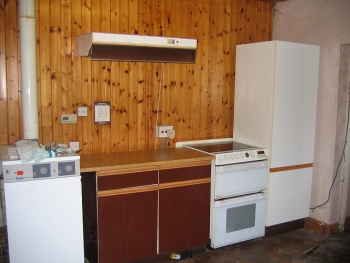Getting More From Oil Boilers - Keep Your Home Warm for Less

Oil boilers have been a popular alternative for many years. They're an affordable option for older homes currently stuck with coal boilers. They're also a great solution for homes without a gas fuel connection. Oil heating has several advantages and you can get even more from them with a few hints and tricks.
The Advantages of Oil Boilers
An oil fuelled boiler easily heats a three-bedroom home for approximately £1,355 annually and emits four to five tonnes of carbon. They can reduce your energy costs by up to 85% when new, but only 60% to 70% for older systems. A new condensing model, however, can save 92% or more and supply your home with hot water.
Regardless of which system you choose, building regulations require all oil-fired boilers to have an efficiency rating of at least 86%. If your system doesn't meet these requirements, you can opt to upgrade to a new one. Alternatively, you can further increase the energy efficiency of oil boilers by making a few changes.
Improving the Energy Efficiency of Oil Boilers
To keep an oil-fired boiler working as efficiently as possible, it needs regularly maintenance and cleanings. You need to keep the lines properly insulated and free from sediment. You can also reduce the amount of oil needed to heat your home by turning down your home's thermostat. In the summer, condensing boiler systems can use more fuel than it needs, consider turning the hot water temperature down to approximately 49 degrees Celsius or 120 degrees Fahrenheit to save fuel.
Retrofitting is another way to improve the energy efficiency of an oil boiler. Vent dampers and barometric flue dampers prevent the system from losing heat through the chimney. In an older boiler system, the burner often becomes inefficient. To rectify this issue, replace it with a flame retention burner that can stop the airflow up the chimney.
To reduce the amount of fuel the heating system needs to run, consider changing out the existing nozzle with a smaller one. However, you may also need to hire an experienced professional to reconfigure the combustion chamber and adjust the fuel pump pressure. It's a big job, but it's a great option if your home heating system is too large.
Hot water boilers have a few additional retrofit options. For example, a time-delay relay will circulate the hot water through the system without turning on the boiler. Then, it will fire up the boiler at a set time, which can reduce fuel consumption by up to 10%. An aquastat can help you save an additional 10% of your fuel costs by adjusting the water temperature according to the outdoor temperature.
Keeping the Warmth Indoors
While older homes are often quite inefficient, you can take steps to further improve the energy efficiency of newer homes as well. Insulating your home's loft and walls with products like sheep's wool or wood fibre can greatly improve the warmth of your home while limiting your carbon footprint. Filling in gaps in the chimney and walls can also help reduce energy consumption. Alternatively, you may want to install a wood stove to offset some of your fuel costs and make your home more comfortable.
Not all energy saving ideas have to be expensive and require a lot of work, however. For example, using insulated drapes or blinds can help keep the cold out and the warmth indoors where it belongs. In the colder months, you simply have to close them at night and open them to let in the sun's warmth during the day. In the summer, do the opposite to keep the house cool. Outside, consider planting deciduous trees around your home. They'll shade your home and keep it cool in the summer, but let the sun in during the colder months.
Oil boilers can be an excellent heating system, but you can make them better by improving the energy efficiency of the heating system and your home. Even the smallest steps you take to make your home more energy efficient can have a noticeable effect on your home's oil usage. And if you choose products made of renewable resources, you can further reduce your carbon footprint.
